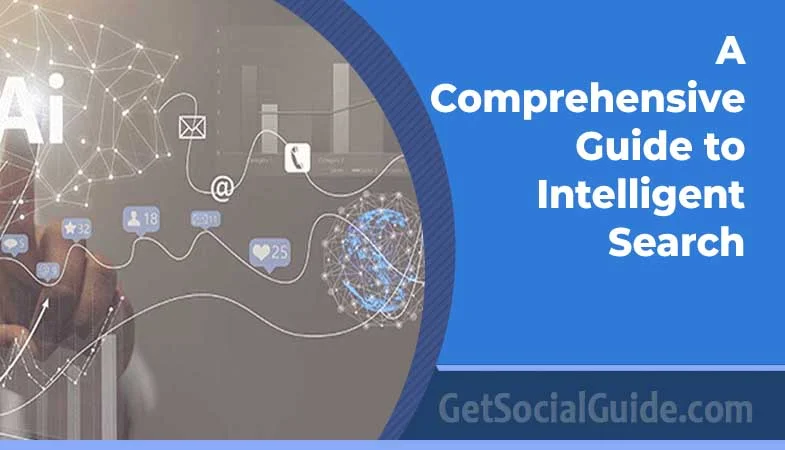In the digital age, finding relevant information quickly has become imperative for businesses. Overwhelming amounts of data across various digital platforms have led to the inception of advanced search technologies. The intelligent search system is one such technology that has come to the fore. In this article, we delve deep into this topic.
Understanding the Concept of intelligent search

Alt text: A person working on two computer screens utilizing intelligent search.
Intelligent search refers to the technology that employs complex algorithms to yield valid, relevant results to a user’s query. Unlike traditional search systems, it utilizes the literal match and considers various elements like context, user’s past behavior, and semantic understanding.
While the traditional methods offer a literal match against the search query, the intelligent search provides sophisticated results accounting for the nuances of human language.
So, how does this advanced system work? The answer lies in the application of artificial intelligence (AI), which entails methodologies like machine learning (ML) and natural language processing (NLP). These technologies work in sync to understand and respond to nuanced user queries more efficiently.
The Inner Workings of Intelligent Search Systems
Intelligent search operates on an array of advanced technologies. The initial step involves crawling, where the system combs through available content sources for relevant data. This data is then indexed, much like cataloging in a library.
The indexed data serves as a prepared field for the gears of NLP and ML. While NLP works on understanding the language’s context, ML ensures the system learns and improves itself from past search patterns.
These complex operations carry on in the blink of an eye to provide you with your desired search result. Another vital property of intelligent search is its ability to personalize results based on user behavior, enhancing user experience even further.
The Main Advantages of Using Intelligent Search
The most significant advantage of intelligent search is its ability to provide relevant search results tuned to the user’s intent. This relevance tremendously enhances the user experience.
Another advantage is the speed with which it presents the result. It’s not simply about delivering the right answer; it’s about delivering it at the right time. This efficiency can be the difference between success and failure in a data-driven world.
Besides relevance and speed, intelligent search offers a highly personalized experience by learning from the user’s past behavior. It remembers your past queries, frequently visited sites, and clicked links and provides results based on these factors.
Intelligent search results in improved productivity, efficiency, and an overall better user experience.
Real-World Examples of Intelligent Search Applications

Alt text: A person holding up their phone using intelligent search.
Intelligent search is no longer a futuristic concept; it’s here and being used in real-world applications across diverse industries. A prominent example is the digital marketing industry, which has significantly revolutionized search engine optimization (SEO) practices.
Massive e-commerce platforms like Amazon use intelligent search to suggest products relevant to the user’s query and past browsing behavior. This feature has substantially improved the online shopping experience.
Another application of intelligent search can be seen in the healthcare industry. Intelligent search in Electronic Health Records (EHRs) has made it easier for doctors to retrieve relevant patient history.
Shaping the Future: Intelligent Search and Its Impact on SEO
The advent of intelligent search has profoundly impacted the field of SEO. It has moved from a keyword-centric approach to focusing on user intent, making the search process more personal and relevant.
Intelligent search has also brought in the concept of digital assistants and chatbots. These AI-driven platforms are now used by businesses for 24/7 customer support, thus improving the consumer experience.
The impact of intelligent search on SEO can’t be overstated. It has revolutionized how businesses target their audience and deliver content, making it more pertinent and personalized.
Intelligent search is changing the way we search for information. Its impact is not just confined to improving user experience; it’s transforming industries, making them more efficient, and setting a new norm for information retrieval.



